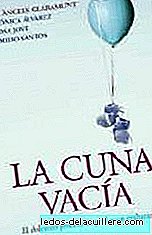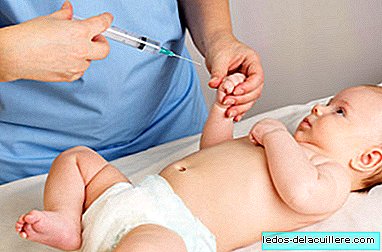
Who has not heard the recommendation to take an infusion during pregnancy to mitigate the burning, to rest better, for circulation ... The ECEMC (Spanish Collaborative Study of Congenital Malformations) has prepared an informative document on the use of infusions and natural supplements from plants during pregnancy.
This document emphasizes that there is no talk of complementary and alternative medicine (acupuncture, chiropractic, massage or homeopathy) but medicinal herbs and natural products that many women consume during pregnancy, among other reasons for fear for traditional medicine to affect the fetus.
Infusions are widely consumed during pregnancy in countries such as the United States, Australia or Spain, and that seems to worry professionals, because you cannot fully trust that they are harmless.
The first thing to remember is that an overwhelming majority of the active substances that medicines contain are extracted from plants. Therefore, the use of some of the infusions and other natural products offered for different health problems, is based on the knowledge of the effect that these active ingredients have on drugs.
Considerations about natural remedies during pregnancy
However, these so-called "natural remedies" also have some problems, which become more important during pregnancy:
- By consuming herbs in infusions (or other forms of presentation such as capsules, pills ...), It is difficult to calculate the doses they contain of each active substance. It is true that, a priori, the dose in an infusion should not be high. But that dose will not always be the same: it will depend on the origin of the plant, on the moment it is collected, on the concentration with which the infusion is prepared, and on the number of times that infusion is ingested per day.
- The quality and concentration of an herbal supplement may vary between two batches of the same product and between products from different manufacturers.
- Most of the substances that are extracted from vegetables and are the active ingredients of medicines can be poisons at certain doses. Therefore, to be part of a medicine, they have had to go through a series of processes in which their characteristics and their effects are determined. Then they go through experimental studies and clinical trials, to determine the doses that have therapeutic effect and are safe. It is not easy, and it would be very expensive, to conduct similar studies on the safety and potential effects of "natural" products.
- Some medicinal plant preparations (especially from other continents) may contain toxic heavy metals or added and undeclared drugs.
- If you are taking any drug, you have to consult the doctor about a possible interaction. Even when taken properly and in appropriate doses, herbs can interact with some medications. An interaction that can result in reducing the therapeutic efficacy of these drugs, potentiating adverse effects or favoring their toxicity if certain doses are exceeded.
Tips on the consumption of herbs during pregnancy
Starting with tea, coffee and mate, which should be used taking into account that the maximum dose of caffeine should not exceed 100 mg / day (including other drinks containing caffeine in the calculation), among the most used herbs are also those that apply to depression, anxiety and sleep disturbances.
- For Tila, mint and Valerian pennyroyal Moderate use is recommended, as they may have adverse effects in combination with other medications, hepatoxicity ...
- Echinacea or St. John's wort (hypericum) is not recommended because they can have adverse effects such as allergies, liver problems, interaction with other medications ...
- Chamomile seems to have no risks, although possible exacerbations of asthma are indicated in the possible effects, among others.
- Anise is accepted in very low doses and sporadic use. It can have adverse effects in patients with epilepsy and produce estrogenic activity.
Recall that the ECEMC investigates the causes of the congenital defects and malformations that occur in newborn children.
The document with the information on the consumption of infusions and natural supplements during pregnancy It has been prepared by the Department of Pharmacology of the Faculty of Medicine of the Complutense University of Madrid. Hopefully it will help so that infusions and "natural remedies" are not taken lightly.












